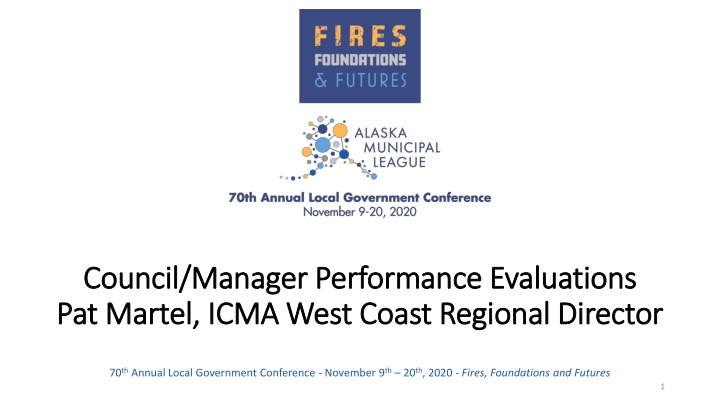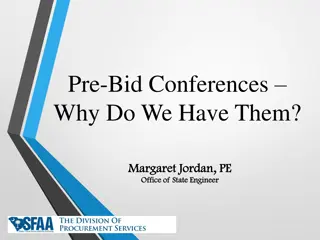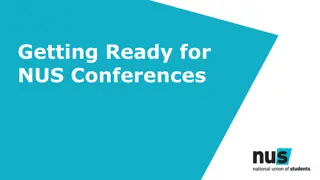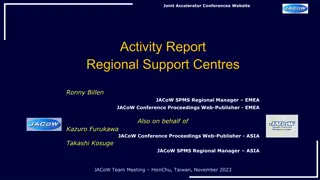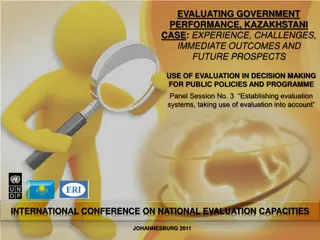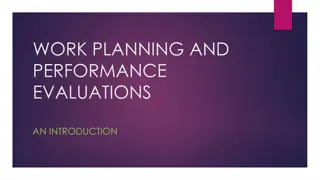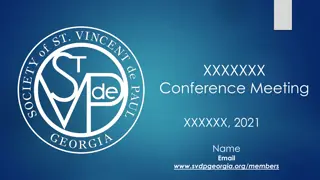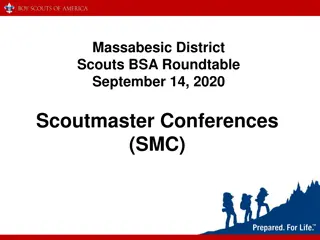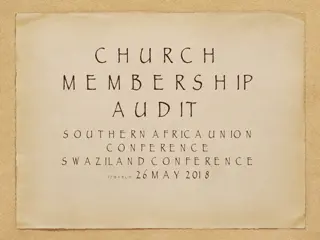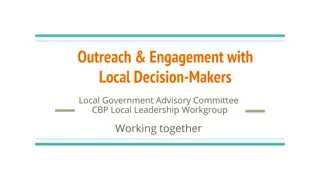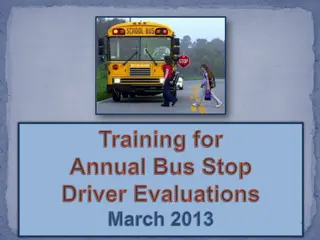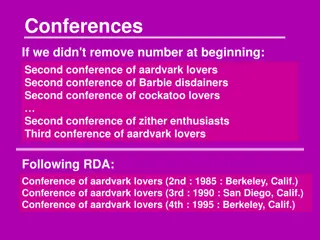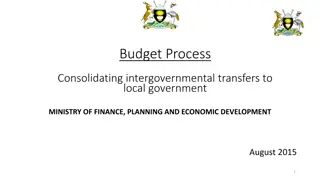Performance Evaluation Process in Local Government Conferences
Explore the intricate process of performance evaluations in local government settings as discussed during the 70th Annual Local Government Conference. The evaluation process covers key aspects such as initiating evaluations, the role of city managers and councilors, benefits of facilitated evaluations, and the importance of effective communication and relationship building. Discover best practices and strategies for conducting performance reviews that contribute to high-performance organizations.
Download Presentation

Please find below an Image/Link to download the presentation.
The content on the website is provided AS IS for your information and personal use only. It may not be sold, licensed, or shared on other websites without obtaining consent from the author.If you encounter any issues during the download, it is possible that the publisher has removed the file from their server.
You are allowed to download the files provided on this website for personal or commercial use, subject to the condition that they are used lawfully. All files are the property of their respective owners.
The content on the website is provided AS IS for your information and personal use only. It may not be sold, licensed, or shared on other websites without obtaining consent from the author.
E N D
Presentation Transcript
Council/Manager Performance Evaluations Council/Manager Performance Evaluations Pat Martel, ICMA West Coast Regional Director Pat Martel, ICMA West Coast Regional Director 70th Annual Local Government Conference - November 9th 20th, 2020 - Fires, Foundations and Futures 1
Performance Performance Evaluations Don t Evaluations Don t Have to Be Cliff Have to Be Cliff Hangers!! Hangers!! 2
Welcome and Panelist Introductions Welcome and Panelist Introductions Mayor Beth Weldon, City & Borough of Juneau Rorie Watt, City Manager, City & Borough of Juneau Mayor Pat Branson, City of Kodiak Josie Bahnke, Interim City Manager, City of Kodiak Pat Martel, ICMA, Moderator 3 Alaska Municipal League s 70th Annual Local Government Conference - November 9th 20th, 2020 - Fires, Foundations and Futures
Overview of the Performance Evaluation Process 4
Chief Executive Evaluation: Key Things to Keep in Mind Chief Executive Evaluation: Key Things to Keep in Mind Purpose: effective communication, relationship building, an important component of a high-performance organization. Agreement on Process All City Councilors Participate What to Cover? Self-Evaluation Component Timing 5
Initiating the Evaluation Process Initiating the Evaluation Process Performance appraisal process is the natural continuation of the hiring process. A best practice for city manager employment agreements is to include language which stipulates the requirement/schedule for an annual performance review process and consideration of fair/equitable compensation adjustments based on performance. Who Initiates the Process? Using a Third-Party Facilitator 360-Degree Assessments 6
Benefits to Using a Facilitated Evaluation Process Benefits to Using a Facilitated Evaluation Process For the City Manager: A timely and well-managed process. Specific, useful feedback. Consensus view of performance An opportunity to discuss compensation or contract changes in a constructive manner. For the Governing Body: Process consumes less time and effort. All Councilors have their say, one or two members don t dominate the discussion. Dialogue is less politicized and more focused on objective criteria. 7
The Ratings Issue The Ratings Issue How to Develop and Use the Rating Instrument. ICMA Practices for Effective Local Government Leadership* Measure Observable Behaviors and Progress Towards Goals. To Be Fair the Evaluation Must Be Outcome Based. 8
Start Start with identifying areas where the manager is doing well. Give the manager recognition and acknowledgement for accomplishments and improvements made. Give Tips for a Successful Evaluation Create Create a positive environment for the remainder of the review process. Emphasize facts; provide concrete examples and specific details of action, work and results. Emphasize Describe Describe performance that you would like to see continued Reinforce Reinforce the manager s performance. 9
Tips for a Successful Evaluation cont. Describe actions and results that have not met expectations. Identify areas where the manager can make a greater contribution. Discuss areas that need improvement. Keep the discussion focused on performance. Don t sidestep problems. Document performance problems and clearly identify what needs to improve. Be specific about any situation or performance observed that needs to be changed. Be honest. Tell it like it is. Be a coach, not a judge. 10
The performance appraisal process provides the venue for the elected governing body and city manager to discuss and strengthen the council-manager relationship, ensuring better alignment of goals while reducing misunderstandings and surprises. When elected bodies conduct regular performance appraisals of the city manager, they are more likely to achieve their community s vision, goals and objectives. In In Conclusion Conclusion 11
Resources Resources Austin et al. (2013). Manager Evaluations Handbook. Retrieved from URL https://www.icma.org/evaluations ICMA Practices for Effective Local Government Leadership. (2013). Retrieved at URL https://icma.org/practices-effective-local-government-leadership Institute for Local Government. (2012). Chief Executive Evaluation. Retrieved from URL https://www.ca-ilg.org Greene, M. (2018). How Do You Prepare Yourself Mentally and Emotionally for an Evaluation by Elected Officials? Retrieved from URL https://www.icma.org./evaluations Perkins, Jan. and Benest, Frank. (2016). A Constructive Dialogue. Retrieved from URL https://www.icma.org/evaluations Sample Evaluation Forms for Local Government CAOs. Retrieved at URL https://icma.org/documents/sample-appraisal-performance 12
